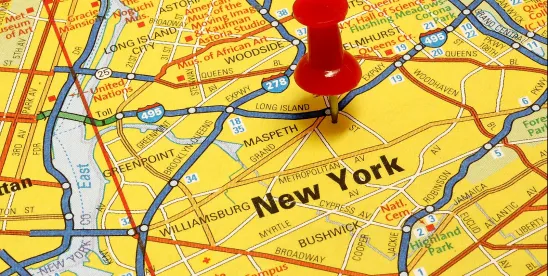The New York County Commercial Division rules differ materially from rules in New York County generally and, over time, have come to mirror the more stringent federal demands.
One such key difference is with respect to expert disclosures, specifically Rule 13(c), which can be a disastrous trap for those unfamiliar with its requirements.
Most practitioners are familiar with CPLR § 3101(d), governing expert disclosure in New York generally, which does not require a written report but only that the expert disclosure—traditionally drafted by counsel—state “in reasonable detail the subject matter on which each expert is expected to testify, the substance of the facts and opinions on which each expert is expected to testify, the qualifications of each expert witness and a summary of the grounds for each expert’s opinion.” In contrast, New York County’s Commercial Rule 13(c) requires that, “[u]nless otherwise stipulated or ordered by the court, expert disclosure must be accompanied by a written report, prepared and signed by the witness, if either (1) the witness is retained or specially employed to provide expert testimony in the case, or (2) the witness is a party’s employee whose duties regularly involve giving expert testimony.” Rule 13(c) also sets forth certain requirements for the content of the report. Specifically, “[t]he report must contain:
(A) a complete statement of all opinions the witness will express and the basis and the reasons for them;
(B) the data or other information considered by the witness in forming the opinion(s);
(C) any exhibits that will be used to summarize or support the opinion(s);
(D) the witness’s qualifications, including a list of all publications authored in the previous 10 years;
(E) a list of all other cases at which the witness testified as an expert at trial or by deposition during the previous four years; and
(F) a statement of the compensation to be paid to the witness for the study and testimony in the case.”
Failure to fully comply with Rule 13(c) is not taken lightly, and courts in the Commercial Division have gone as far as to preclude expert testimony entirely on this very basis. For instance, as recently as May 16, 2024, the First Department in Taxi Tours Inc. v. Go New York Tours Inc., 227 A.D.3d 530, 531 (1st Dep’t 2024) affirmed the trial court’s exclusion of the expert’s testimony based on defendant’s failure to comply with Rule 13(c)(B), which requires “the data forming the basis for its expert’s opinion.” In doing so, the First Department stated that defendant “should have known about its Rule 13(c) obligation to supply that data while submitting the expert disclosure” and, in the absence of any justification and in light of the prejudice, preclusion was appropriate.
Therefore, practitioners practicing in the Commercial Division should be familiar with these requirements before exchanging any expert disclosure to avoid the unnecessary cost and embarrassment of attempting to justify noncompliance after the fact.




 />i
/>i

